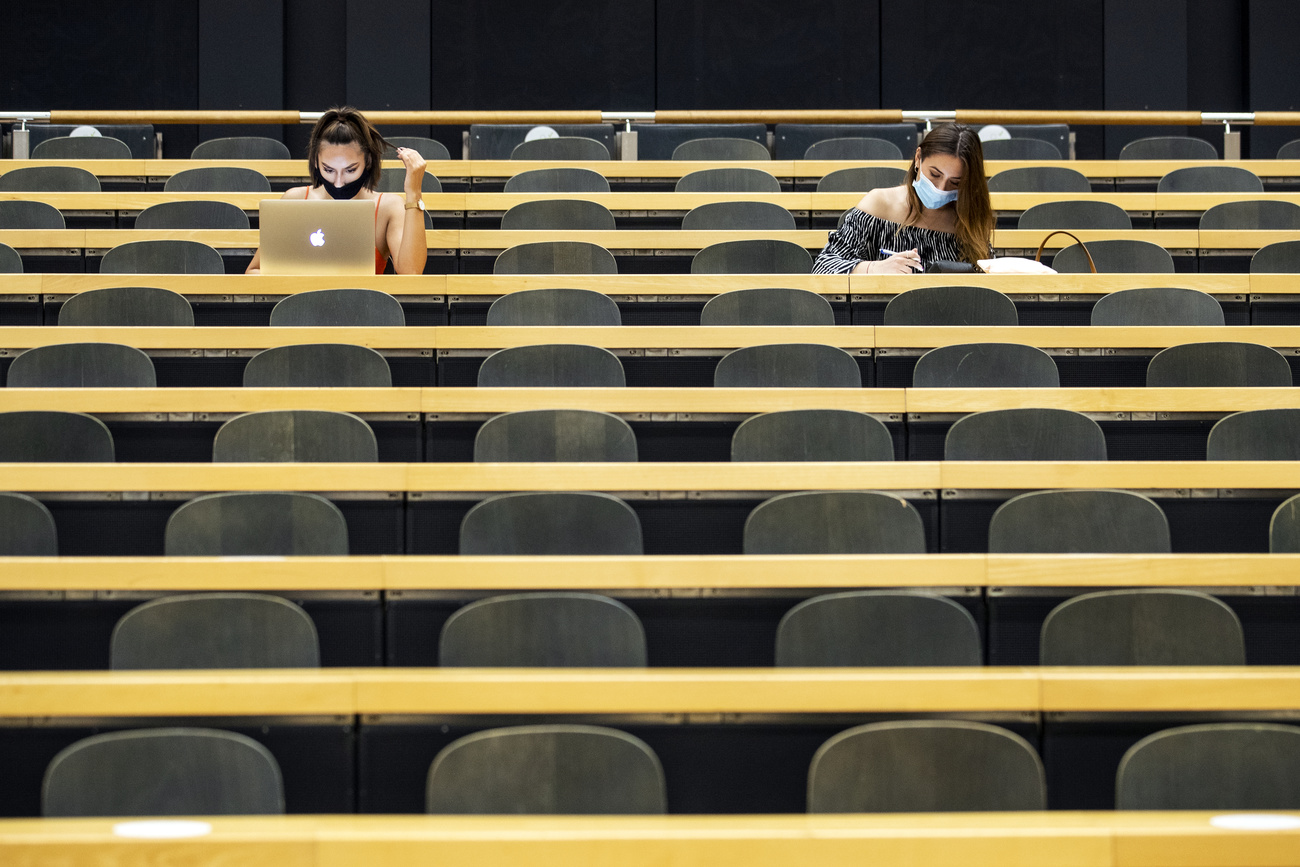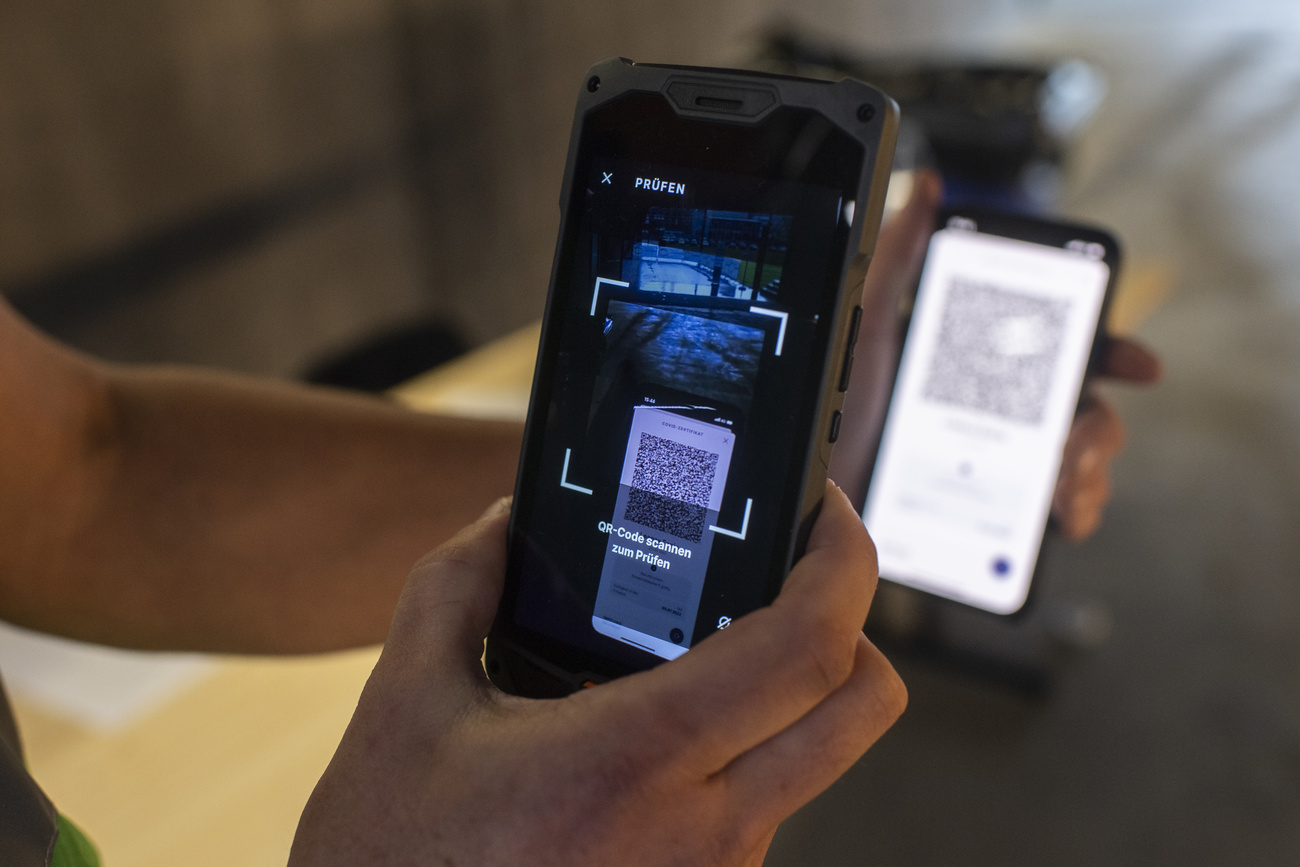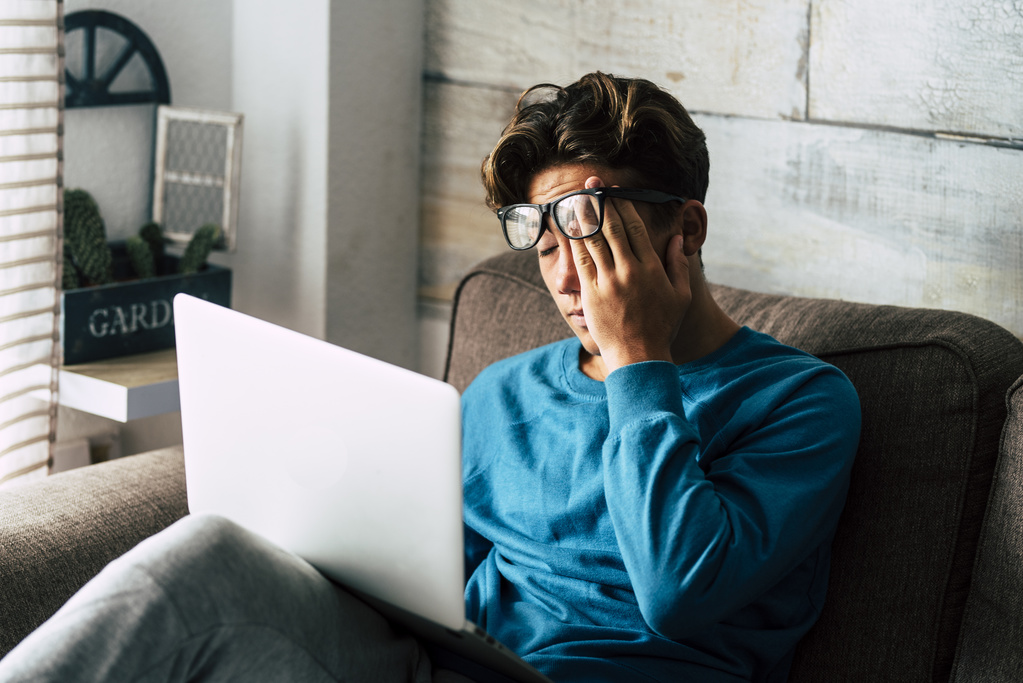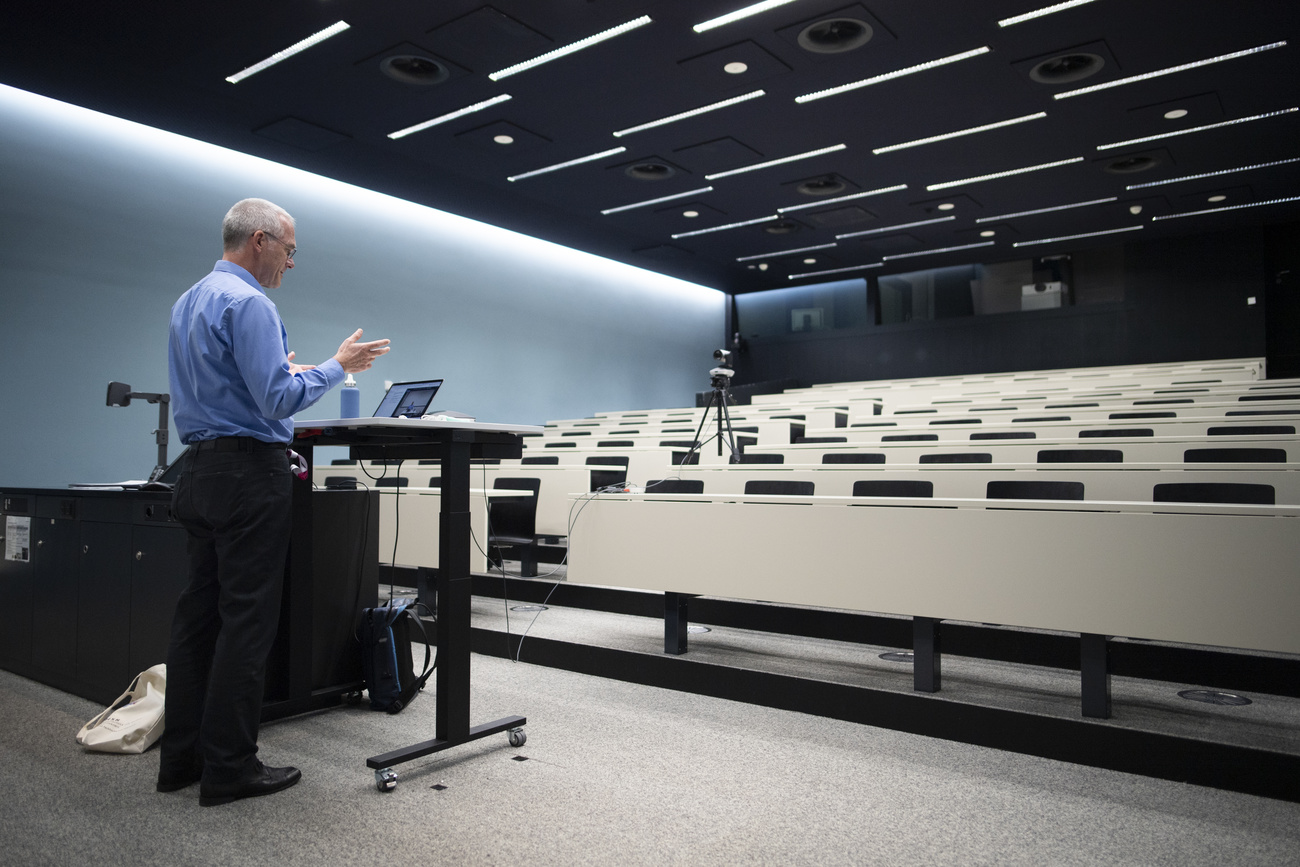Mixed feelings over Covid certificate at Swiss universities

Thousands of students will be heading to university on Monday as the new semester begins. Most of them will be required to show their Covid certificate.
For many students it will be first time in a while that they have set foot on campus, having endured two lockdown periods and much distance learning over the past 18 months.
Most of the 12 public universities in the country have now decided to introduce the Covid certificate, which show if a person is vaccinated, test or recovered, for on-site teaching. This includes the two prestigious Swiss Federal Institutes of Technology in Lausanne (EPFL) and in Zurich (ETH Zurich).
The decision comes after the government said universities could introduce the certificate requirement for teaching at Bachelor and Masters level. The use of the certificate was extended to public spaces such as restaurants, culture events and leisure activities on September 13, as Switzerland grapples with a fourth wave of the coronavirus, propelled in part by the spread of the highly contagious Delta variant among unvaccinated young people.
Masks
Basel University professor Dominique de Quervain, who caused some controversy – and a lot of debate – when he tweeted mid-AugustExternal link that he would not hold any in-person lessons if unvaccinated and non-tested students were allowed into lecture halls, is among those to welcome the certificate move.
“However, wearing masks during lectures will remain important,” the professor of Cognitive Neuroscience told SWI swissinfo.ch via email. “The ETH Zurich and the universities of Lausanne and Bern have already decided to make it compulsory.”
This is because tests could still miss a few positive tests among the unvaccinated, he said.
Differences
Another issue for him, as highlighted in a recent twitter threadExternal link, is that there are still differences in how the certificates are being applied. His own University of Basel will only introduce the certificate from November 1, to give students time to get vaccinated.
He tweeted that this was “prioritising the needs of those who, contrary to the recommendations and possibilities, have not yet been vaccinated, rather than to the safety of teaching”.
The Università della Svizzera Italiana in Lugano is not introducing the certificate. The university told Swiss public television SRF on Sunday that it had enough room and masks would be mandatory. It also wanted to avoid any possible discrimination and conflict among students, it said.
Meanwhile, universities have been scrambling to work out how they will do the certificate checks. Some, like the University of Zurich, will do spot checks, as well as rely on technical measures and people taking personal responsibility. At the time of publication, others were still drawing up their measures.
Students: mixed views
Reactions have been more mixed among students themselves. Some criticise the lack of consultation, both at the national and local level.
“This is urgently needed to ensure broad support for the measures. We are also disappointed that the coordination between the higher education institutions does not work better,” Elischa Link, co-president of the Swiss Student Union, told SWI swissinfo.ch.
He said member feedback showed that the certificate remained controversial. “The consensus is that people are irritated that education is mentioned in the same breath as leisure activities. That is not accurate, and other standards must apply. Furthermore, there is a consensus that access to education must be guaranteed for all,” Link said via email.
More
Hybrid approach
Some universities, like EPFL; have already said they would offer a hybrid approach, with online and on-site lectures “Students who don’t have certificates will therefore not be excluded from teaching,” the university has said.
Others, conscious of concerns that some students won’t be able to afford repeat testing once the government stops paying for Covid tests on October 1 (as currently announced), have stepped in.
The University of Geneva will offer free saliva tests to non-vaccinated students, which will be valid for lectures but not for other public spaces; the University of BernExternal link will offer PCR tests at several locations on campus. At the universities of Lausanne und Zurich free tests will be offered until October 31.
Abroad
Elsewhere the situation concerning certificates and vaccinations differs. According to a databaseExternal link maintained by the Chronicle of Higher Education, over 1,000 public and private colleges across the United States will require students to be vaccinated against the coronavirus (figures correct at the time of publication), but the move has been controversial in some quarters.
In Italy, university students and staff have to show their green pass, the equivalent of the Swiss Covid Certificate. In Austria and Germany, many institutions have gone with the vaccinated, recovered or tested principle.
But France does not require a Covid certificate to study and concerns have been raised among some UK lecturersExternal link that government instructions on returning to face-to-face teaching have not included adequate protection measures against the spread of Covid-19.

In compliance with the JTI standards
More: SWI swissinfo.ch certified by the Journalism Trust Initiative

















You can find an overview of ongoing debates with our journalists here . Please join us!
If you want to start a conversation about a topic raised in this article or want to report factual errors, email us at english@swissinfo.ch.